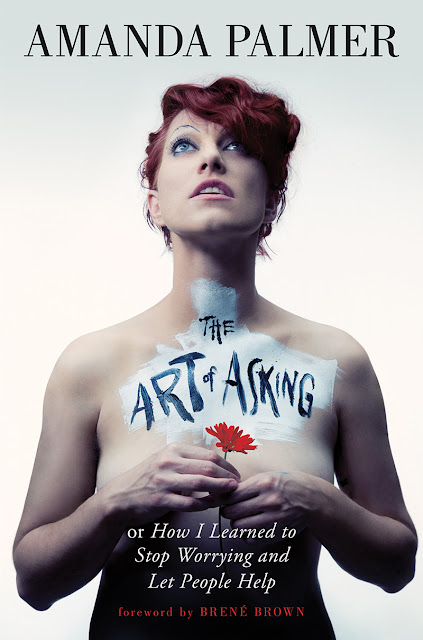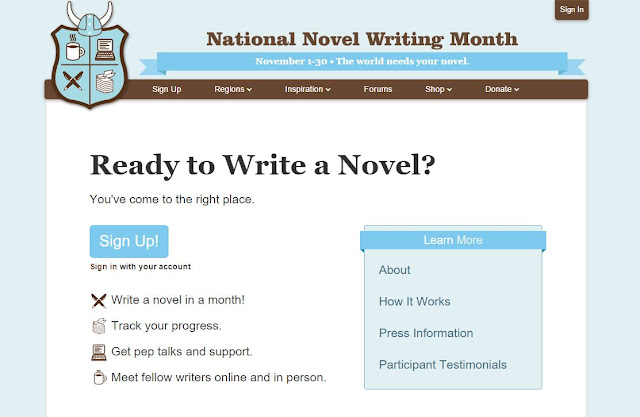REVIEW - THE ART OF ASKING
Amanda Palmer’s
memoir-come-autobiography-come-advice-book-thing is aptly titled. The Art of Asking: How I Learned to Stop
Worrying and Let People Help goes far beyond being a personal recount of
one wonderful lady’s life experiences and traverses around the globe (although
there IS plenty of that in the mix!), The
Art of Asking constructs a kind of meta-narrative about the way asking and
giving are viewed in the age of the Internet, and what we can do to bring an
element of humanism back into our interactions with artists and other
creatives. The book is a wonderful journey which chronicles some of the most
interesting and insightful experiences of Amanda’s life, but it is also a fount
of knowledge about crowdfunding, Kickstarter
and the right artists have to exist in our society – which can often feel as
though it prioritises financial interactions over human ones.
I have known of Amanda Palmer since the days the Dresden Dolls put out their first
official album (2003-ish). During those early years, I did not quite know what
to make of her. Her music was intense, almost visceral in its passion. Teenage-me loved the drama and emotionally charged nature of her singing, but I also
felt somewhat… I want to say intimidated by her, but that’s not quite the right
word. It was almost a scary level of respect. I was so amazed by Amanda’s
ability to be herself and do what she believed in. I suppose she was kind of the epitome or idol of the whole ‘fuck what everyone else thinks, Imma do what I
want’ attitude that I slowly developed during my teenage years. Over the next
few years I continued to follow the Dresden
Dolls’ music. Around the late 2000s I finally had the opportunity to see
Amanda perform live. I believe she was supported during that tour (Who Killed Amanda Palmer) by Zoë
Keating. Zoë was entirely enrapturing – watching her play, I felt more and more in awe of Amanda – I wanted to thank her personally for
introducing me to such beautiful sounds that I would (likely) never have
otherwise heard. Amanda’s performance was even more quirky and beautiful than I
expected. Since first hearing the Dresden
Dolls play, I had always thought Amanda was weird, but I had never thought
of that as a bad thing. I liked weird. I too, was considered weird, and her
weirdness was trumped by my respect for her amazing sense of confidence and
giving.
My opinion of Amanda Palmer only continued to improve
over the years. I went to more of her shows and continued to follow her blog
and other endeavours. She was always willing to say what needed to be said,
talk about the things so many famous people shirk away from discussing. During
the early years of my undergraduate degree, I spotted a flyer proclaiming that
Amanda would be giving a free lecture a few days hence. I hadn’t lived in
Melbourne for very long, and didn’t know anybody who would be interested in
going to something like that. But I didn’t let that stop me – it was a chance
to see Amanda Palmer speak. Live. In the flesh. For free! I remember how absurd
it was to see her up there on a Melbourne University lecture stage – a far more
captivating soul than most who I’d seen take that stage. She played a few
songs, but most of the session was a kind of open Q&A. I believe the event
was set up by Melbourne Uni’s Queer Society, so a lot of the dialogue was about
issues of gender – one particularly interesting discussion was led by a student
who was asexual. I was so nervous, but I really wanted to ask a
question. I raised my hand and had my chance – asking Amanda where the
inspiration for her songs comes from. Many of them draw on quite dark themes,
and I wanted to know how much of that she based in reality and how much was
fictional. Her answer was really interesting, and one that she expands upon in The Art of Asking. The nature of it was
that every song takes some inspiration from something in reality, whether it
happened to her or someone else, but that she feels free to embellish for the
sake of the narrative of a song. I had another close encounter with Amanda a
while later. During one of Melbourne’s many free arts festivals, she was
performing and then doing a live reading of ‘Go the Fuck to Sleep’ at the Spiegeltent – I have no idea why, but I do remember the amazing jazz
band which played after her reading, and the carefree way she simply jumped onto
the dancefloor with the rest of us. Swinging and boogieing our way until the
early hours, it seemed so surreal that Amanda felt comfortable doing something
like that – but at the same time it felt incredibly natural.
Reading The Art of
Asking has simply provided more reason for me to respect Amanda both as an
artist and a human being. In her book Amanda
lifts the veil and reveals just how intimately she maintains her relationship
with her fans – how she hates the idea of being above, and believes relationships
with fans are just a kind of extension of friendship. Not a top-down relationship, but a community, for just as Amanda considers herself
friends with her fans, fans become friends with other fans, building a kind of
net of friendship, which tightens as the group interacts. The foundation of friendship, though, is always
trust – and this is what most creatives do not invest in their fans. Amanda’s
endless recounts of her interactions with fans lays a strong case for her opinion. Since the
early days of the Dresden Dolls, in the late 90s, she has personally invested
oodles of time in maintaining friendships with fans, and this is what enabled
her to become the most-funded Kickstarter musician of all time. When requesting
$100,000 to fund the production of her next album, Amanda was not simply
yelling into the abyss and asking strangers for money, she was calling on an
enormous network of friends to help her continue to do what she loved doing,
and treat them to her art which they loved hearing. Over one million dollars
were raised – at the time the most successful Kickstarter campaign ever, and
still the most funded music related Kickstarter to this day. Amanda’s core message to other artists
seems to be that trust and communication are key. If you communicate with your
fans on a human level, if you are honest with them, if you trust them, they
will trust you too. And from this trust a beautiful relationship can develop.
Reading The Art of Asking made me acutely aware of how human Amanda is, making me admire her even more for the fearless way she lives. You could never tell but she DOES have all those crazy doubts that my teenage self greatly
admired her for NOT having – the book is extremely humanising and has only
bolstered by respect for this incredible artist. She explores those horrible
questions of self-doubt that all artists are plagued by and helps us understand
why we are, in fact, worthy, and why what we do is important to society and IS a
real job. I think most artists feel that what they do is important, but have so
much trouble articulating why that is – so their self doubt (bolstered by the
low value most societies place on art) grows and grows. If you are any type of
creative, or more broadly, if you have EVER had these kinds of doubts, you owe
it to yourself to read this book.
The advice Amanda gives about crowdfunding is grand. As
it is relatively new, and exists outside of the traditional financial system,
there are very few people who can claim to be crowdfunding experts, but I
believe Amanda may be one of them. Aside from providing a plethora of
interesting recounts chronicling her own, and her many friend’s, experiences
with crowdfunding, she does an excellent job of explaining how, and why, it
works. As Amanda so eloquently explains, crowdfunding is not about asking a
whole bunch of strangers for free money. It is about giving people who trust in
you, and your ability to make art, an opportunity to invest in your next
creative endeavour, while always getting something in return for their
investment. Amanda provides a plethora of metaphors and stories which will help
you grasp the way the Internet is changing how our society functions, why
social media is important for artists, and why it can be a beautiful thing. The Art of Asking is honest. While it is
inspiring, and full of uplifting stories, Amanda doesn’t gloss over the dark
stuff. It’s all there – the balance of life honestly portrayed.
Even though my direct contact with Amanda over the years
has been very minimal, I love all that my distant interactions with her have
introduced me too. You are amazing Amanda – thankyou for taking time out of
what you seem to enjoy doing best (writing and performing music) in order to
share your stories and wise words with us in your book. It made me feel shiny
to read it and know that a future where the Internet makes us more, not less,
human is entirely within our reach.



Comments
Post a Comment